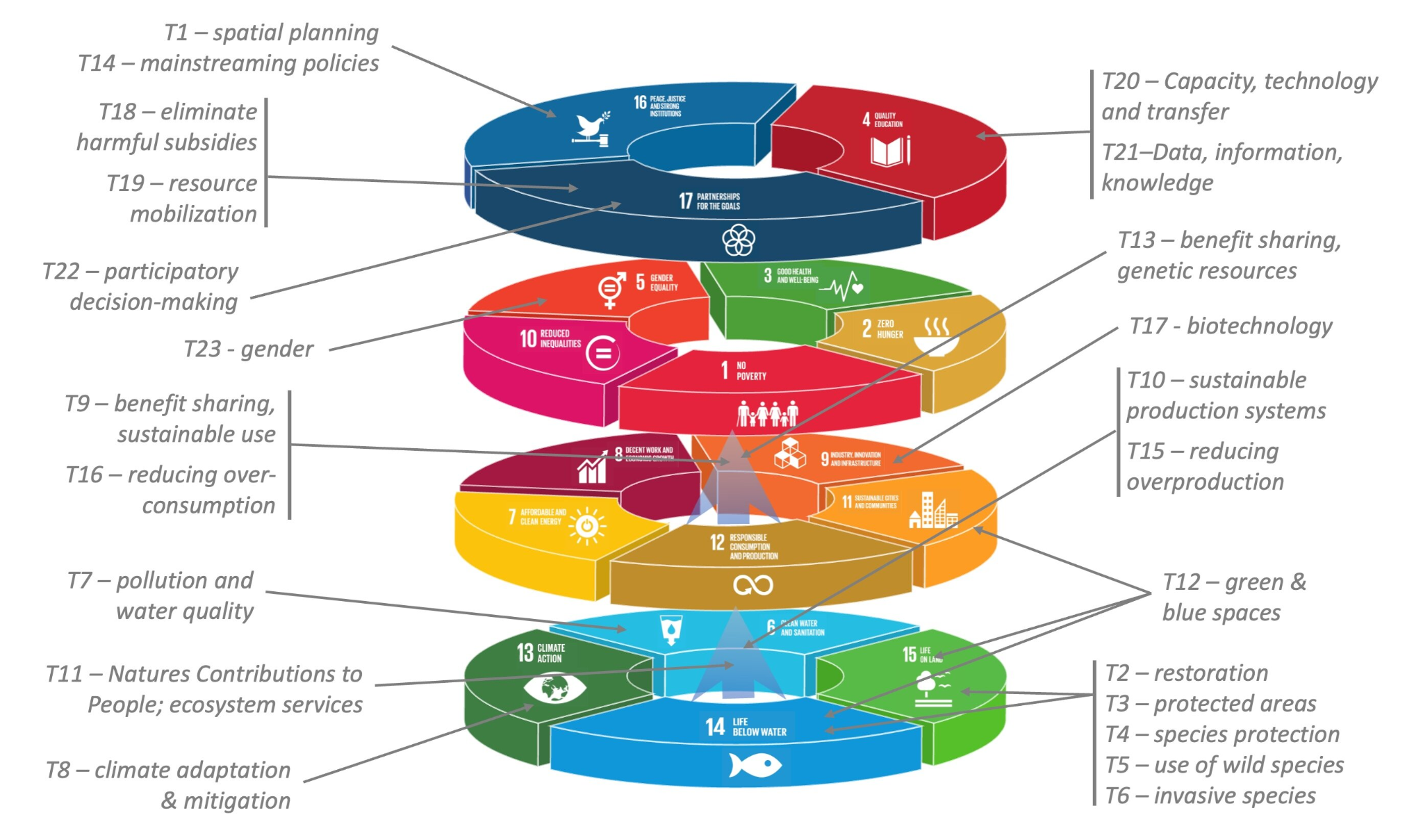Biodiversity & Environment
The International Day for Biological Diversity 2023
- 23 May 2023
- 6 min read
For Prelims: Biological Diversity Day, UNFCCC COP 15, Kunming-Montreal Global Biodiversity Framework
For Mains: Kunming-Montreal Global Biodiversity Framework, Outcomes of COP 15, Environmental Pollution & Degradation, Importance of Green Finance in sustainable development
Why in News?
The International Day for Biological Diversity (IDB), celebrated on 22nd May 2023, raises awareness about the importance of biodiversity for sustaining life on Earth.
- The Global Assessment Report on Biodiversity and Ecosystem Services highlights the risk of extinction for around one million species.
- To address the biodiversity crisis, the Kunming-Montreal Global Biodiversity Framework was adopted at the 15th Conference of Parties (COP 15) to the Convention on Biological Diversity
- This framework sets ambitious targets for 2030 and provides a roadmap for conservation, restoration, and sustainable use of biodiversity.
What is International Day for Biological Diversity?
- About:
- The United Nations General Assembly (UNGA) in 2000 proclaimed 22nd May as IDB to increase understanding and awareness of biodiversity issues.
- The UNGA also declared the period 2011-2020 as the United Nations (UN) Decade on Biodiversity to promote the implementation of a strategic plan on biodiversity and its overall vision of living in harmony with nature.
- It also declared 2021-2030 as the UN Decade of Ocean Science for Sustainable Development and the UN Decade on Ecosystem Restoration.
- The United Nations General Assembly (UNGA) in 2000 proclaimed 22nd May as IDB to increase understanding and awareness of biodiversity issues.
- Theme:
- The theme for 2023 is “From Agreement to Action: Build Back Biodiversity”, which signifies the pressing requirement to go beyond mere commitments and transform them into concrete actions aimed at revitalizing and safeguarding biodiversity.
What is Kunming-Montreal Global Biodiversity Framework?
- About:
- It calls for urgent and integrated action to reflect biodiversity considerations in all sectors of the global economy but crucial issues - like funding conservation in poorer countries and committing to biodiversity-friendly supply chains have been left to discuss later.
- It is not a binding international agreement.
- It calls upon the parties to mainstream biodiversity protection in decision-making and recognise the importance of conservation in protecting human health.
- The theme of the declaration is Ecological Civilization: Building a Shared Future for All Life on Earth.
- By adopting this, the nations have committed themselves to support the development, adoption and implementation of an effective post-2020 implementation plan, a capacity building action plan for the Cartagena Protocol on biosafety.
- The Protocol seeks to protect biological diversity from the potential risks posed by living modified organisms resulting from modern biotechnology.
- As per the declaration the signatory nations will ensure that the post-pandemic recovery policies, programmes and plans contribute to the conservation and sustainable use of biodiversity, promoting sustainable and inclusive development.
- It calls for urgent and integrated action to reflect biodiversity considerations in all sectors of the global economy but crucial issues - like funding conservation in poorer countries and committing to biodiversity-friendly supply chains have been left to discuss later.
- 30 by 30 Target:
- The declaration made a reference to the '30 by 30' target which is a key proposal being debated at the COP15, that would afford 30% of the Earth’s land and oceans protected status by 2030.
- Main targets:
- The framework consists of four goals and 23 targets for 2030.
- The four goals are:
- Conserve and restore biodiversity.
- Ensure sustainable use of biodiversity.
- Share benefits fairly and equitably.
- Enable transformative change.
- The 23 targets are:
- Challenges with Implementation:
- Limited Timeframe and Urgency:
- With just seven years remaining to meet the GBF targets, immediate action is imperative due to the critical state of around one million animal and plant species threatened with extinction.
- The urgent need to address biodiversity loss requires accelerated efforts and comprehensive implementation strategies.
- With just seven years remaining to meet the GBF targets, immediate action is imperative due to the critical state of around one million animal and plant species threatened with extinction.
- Funding Gap:
- The Signatories aim to ensure 200 billion USD per year is channelled to conservation initiatives, from public and private sources. Raising international financial flows from developed to developing countries to at least USD 30 billion per year by 2025, and at least 30 billion USD a year by 2030. But this funding has yet to be fulfilled.
- Lack of specific funding commitments for biodiversity, as seen in recent statements from the G7, hinders the financial support required for effective implementation.
- The Signatories aim to ensure 200 billion USD per year is channelled to conservation initiatives, from public and private sources. Raising international financial flows from developed to developing countries to at least USD 30 billion per year by 2025, and at least 30 billion USD a year by 2030. But this funding has yet to be fulfilled.
- National Biodiversity Strategy and Action Plans (NBSAP):
- Member states agreed to realign their NBSAPs to the GBF, but progress in submitting the revised plans has been slow.
- Spain is the only country that has submitted its realigned NBSAP so far, highlighting the need for more countries to develop and submit their plans to the CBD secretariat before COP16 in 2024.
- Member states agreed to realign their NBSAPs to the GBF, but progress in submitting the revised plans has been slow.
- Balancing Conservation and Indigenous Rights:
- The target of protecting 30% of land and water has raised concerns regarding potential infringements on the rights of indigenous communities.
- Striking a balance between conservation efforts and respecting the rights and traditional knowledge of indigenous peoples is essential for successful implementation.
- Limited Timeframe and Urgency:





